
Want to help develop a Serious Game at Psychology Lab on Wheels?
Psychology Lab on Wheels makes science accessible for everyone. E-Virt is aiming at being a Serious Game that on its later stages will serve as a tool to help people to improve their emotion recognition skills as well as regulating their own emotions. Join our research to develop E-Virt.
The E-Virt Project has started its pilot testing with participants using the Psychology Lab on Wheels. We went to the Leiden University Old Observatory and to the Dutch Bioscience Week Open Day. In these locations we got some insights about how we should apply the study in a broader context. This study is supervised by Mariska Kret and developed & applied by Diego Arize. In this study, Arize's Applied Cognitive Master's Students Nina Bogaert and Rosalie Slijk had developed two minigames to serve as training for emotion recognition tasks.
Play E-Virt for a week, 5 minutes a day
At this stage this study is being released in social media, especially in the Netherlands and Brazil. The study consists of testing if this training with a app will improve participant's performance on recognising genuine emotions expressions. Participants are requested to perform a pre/post test and to play E-Virt for a week, 5 minutes a day.
Join our research
We are hoping to get even more participants
Please register to participate on this studyRead more about participant Maxime and game developer Diego Arize.
The participant
Maxime Hendriks studied in Leiden. 'No Psychology, but like many others I am interested in human behaviour.' He walked past the bus earlier together with a friend and saw two sweet smiling faces at Psychology Lab on Wheels. And the research also caught his attention. 'Because it's about recognising emotions. For example, I notice that when I use emoticons on my mobile I interpret them differently from the recipient. That's why I want to know more about emotion recognition.' He has never participated in research before, but is now coming back to the bus especially to participate in the study.
The study
For the study, participants sit on the bus for 30 minutes. During the experiment, they are shown images of people with emotions. The question is to scale the intensity of the emotions they see. For example, people show joy and then participants indicate how intense or neutral they perceive that joy; and also with other emotions such as sad, angry and surprised. Then, for seven days, such participants are given a five-minute daily workout. Then they repeat the test in the van to examine whether there has been any improvement.
-
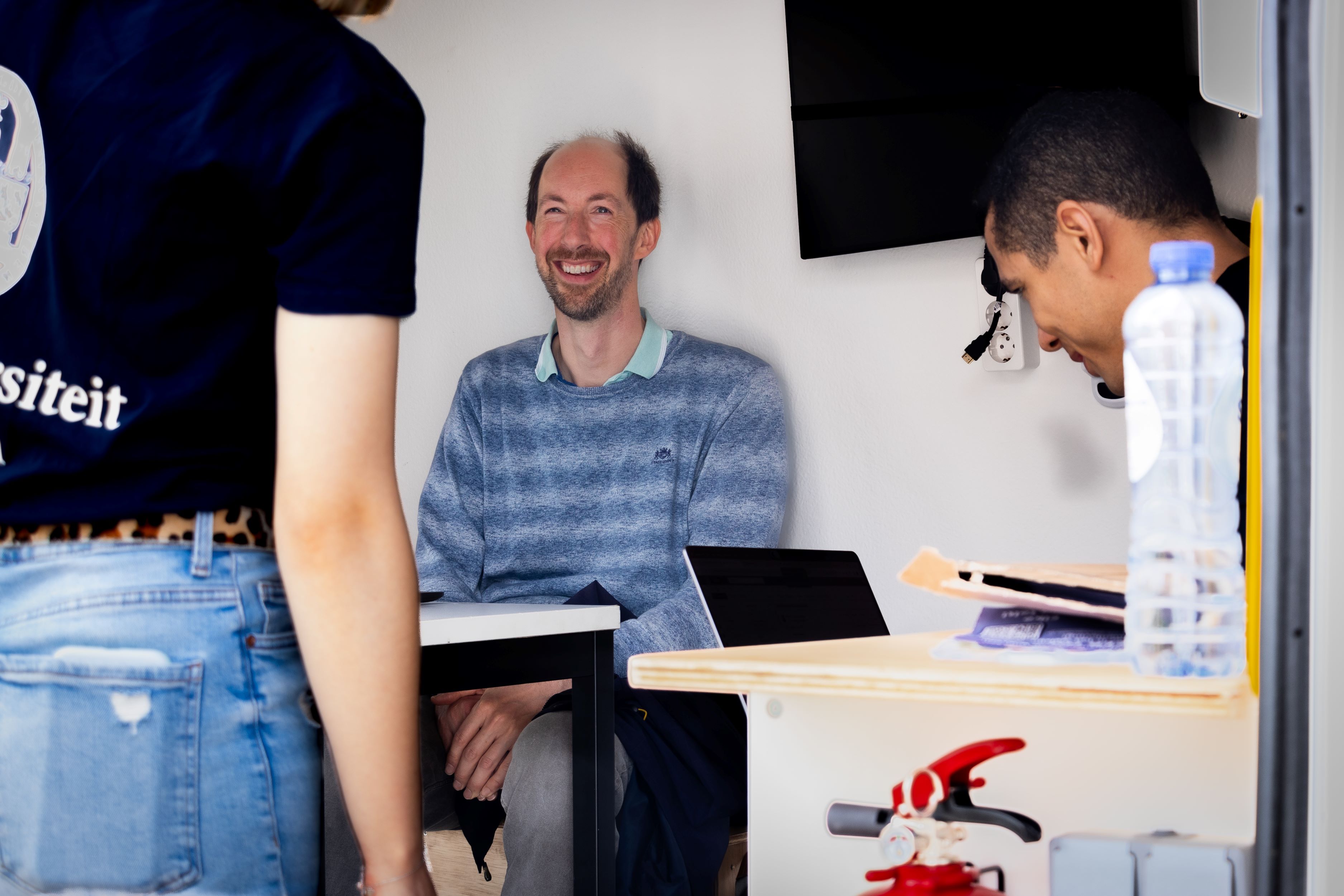
Participant Maxime Hendriks and researcher Diego Arize preparing to put the app on Maximes mobile. -
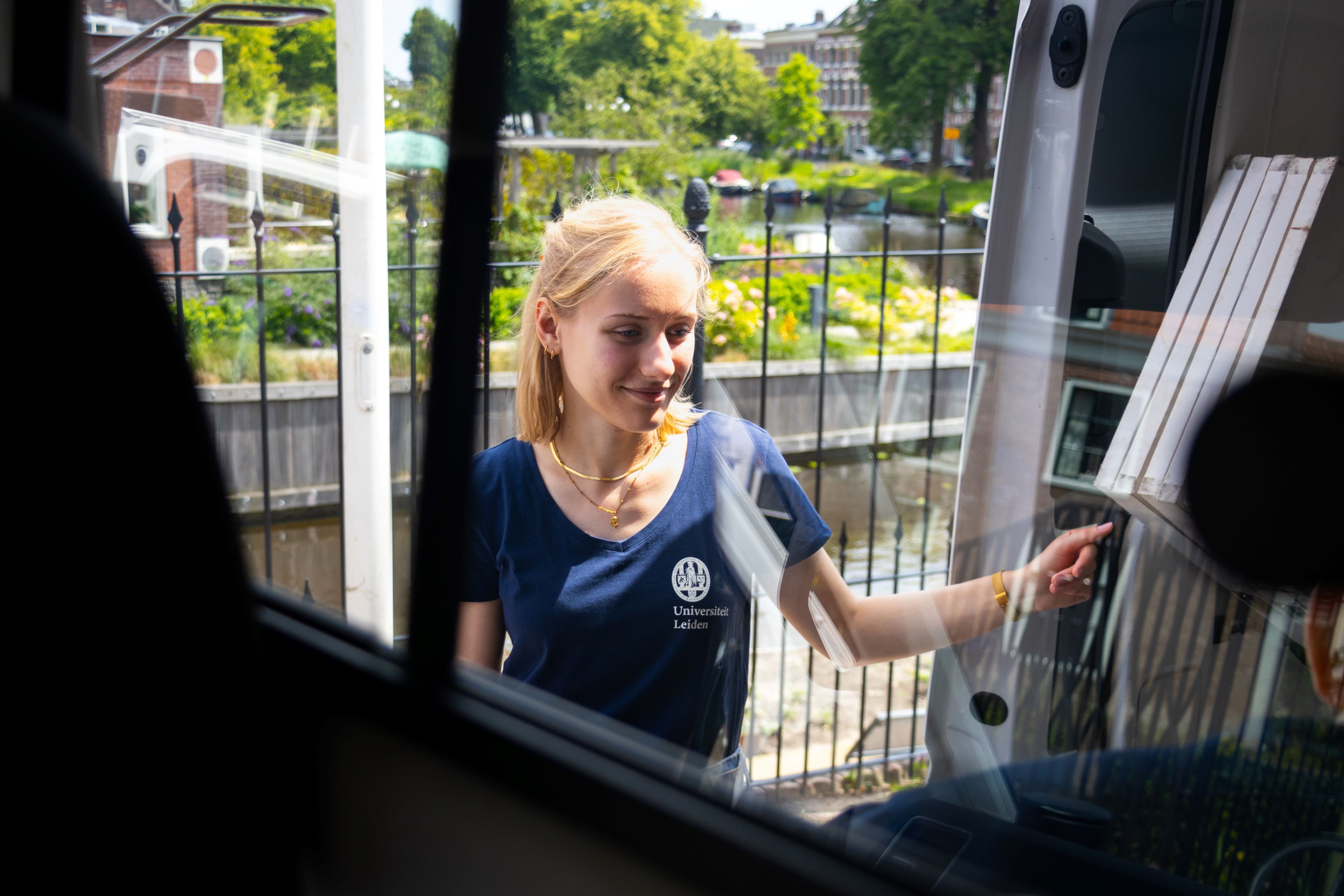
Master's students Applied Cognitive Psychology Rosalie Slijk and Nina Bogaert (not pictured) are involved in the research. -
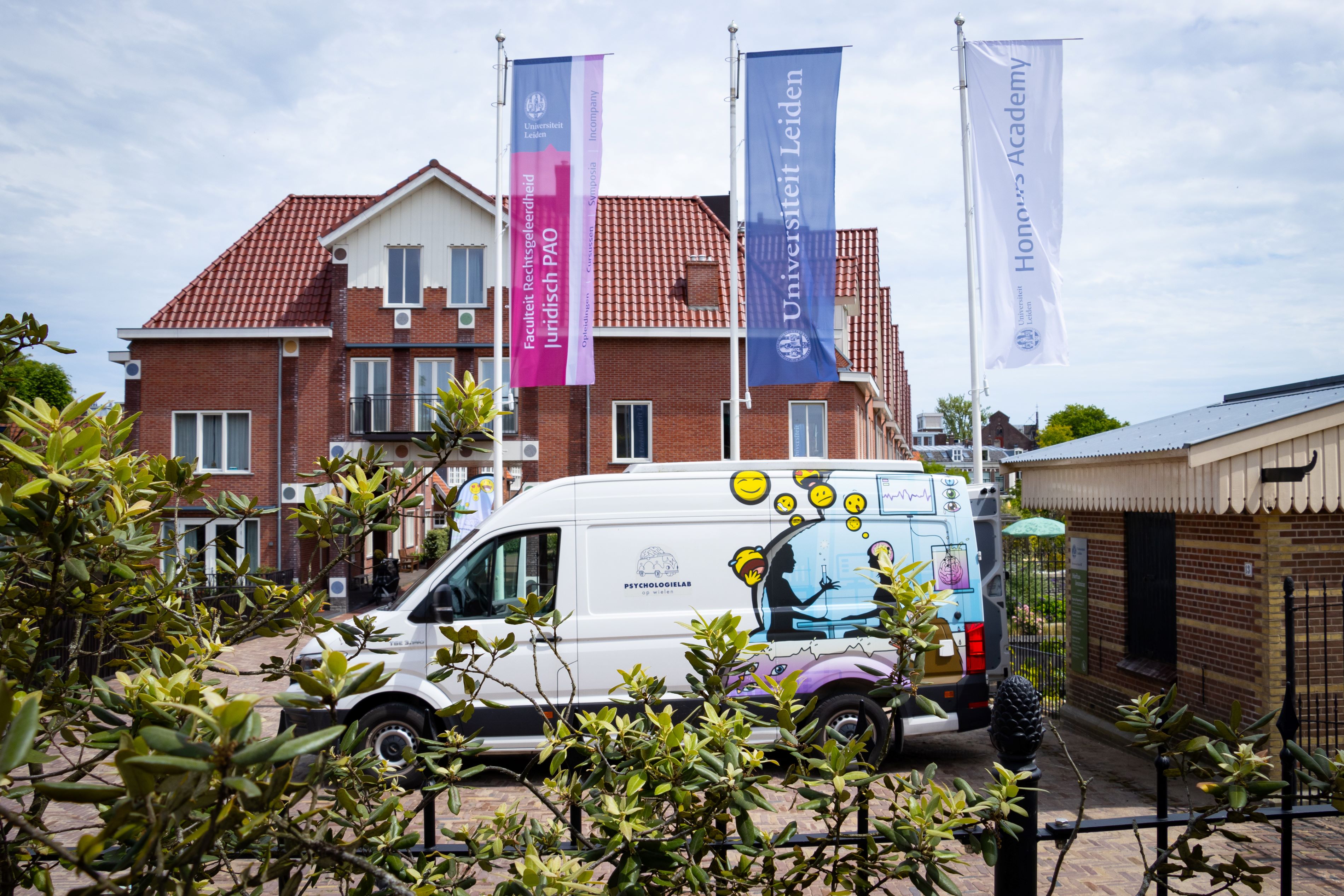
-
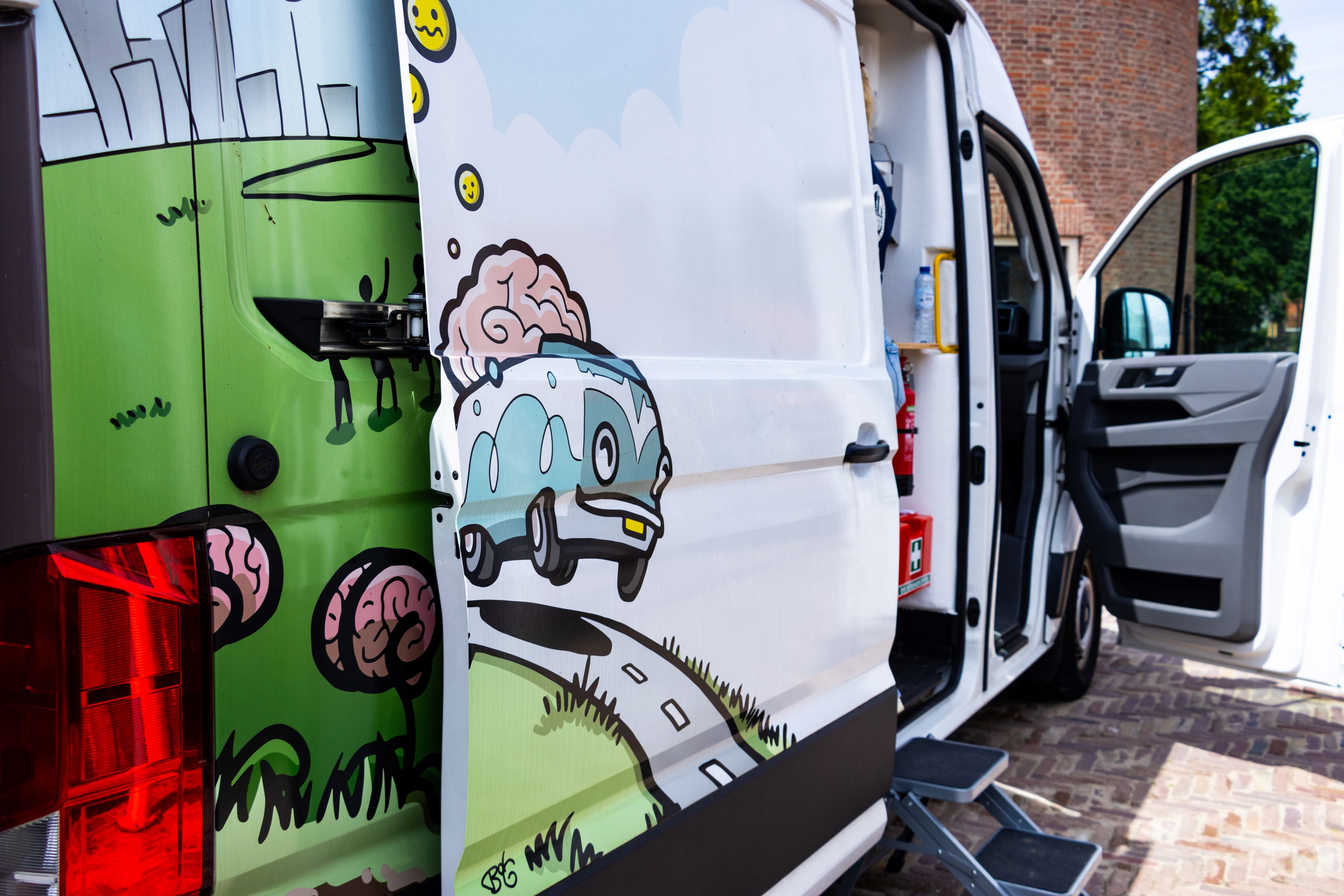
-
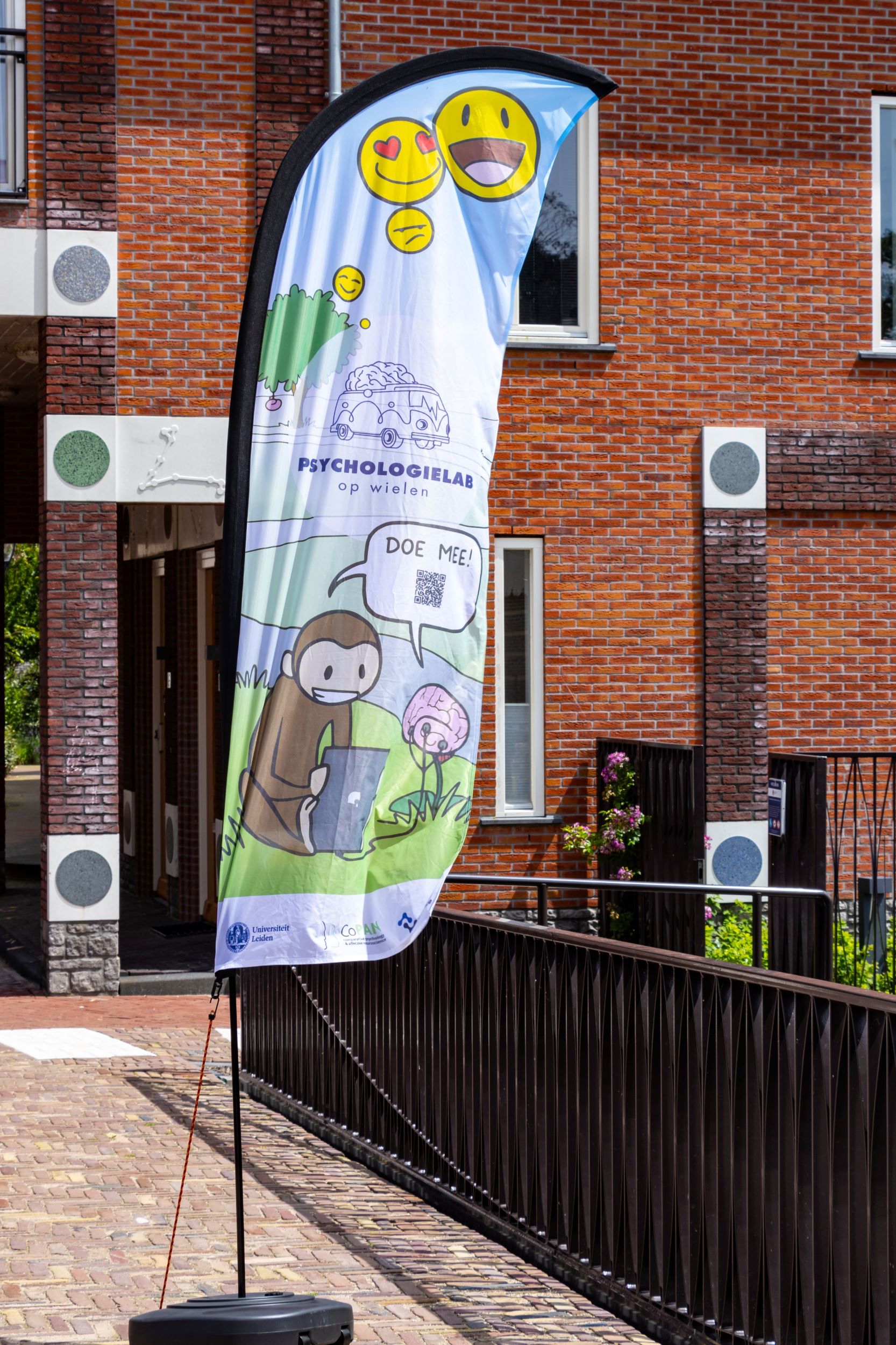
-
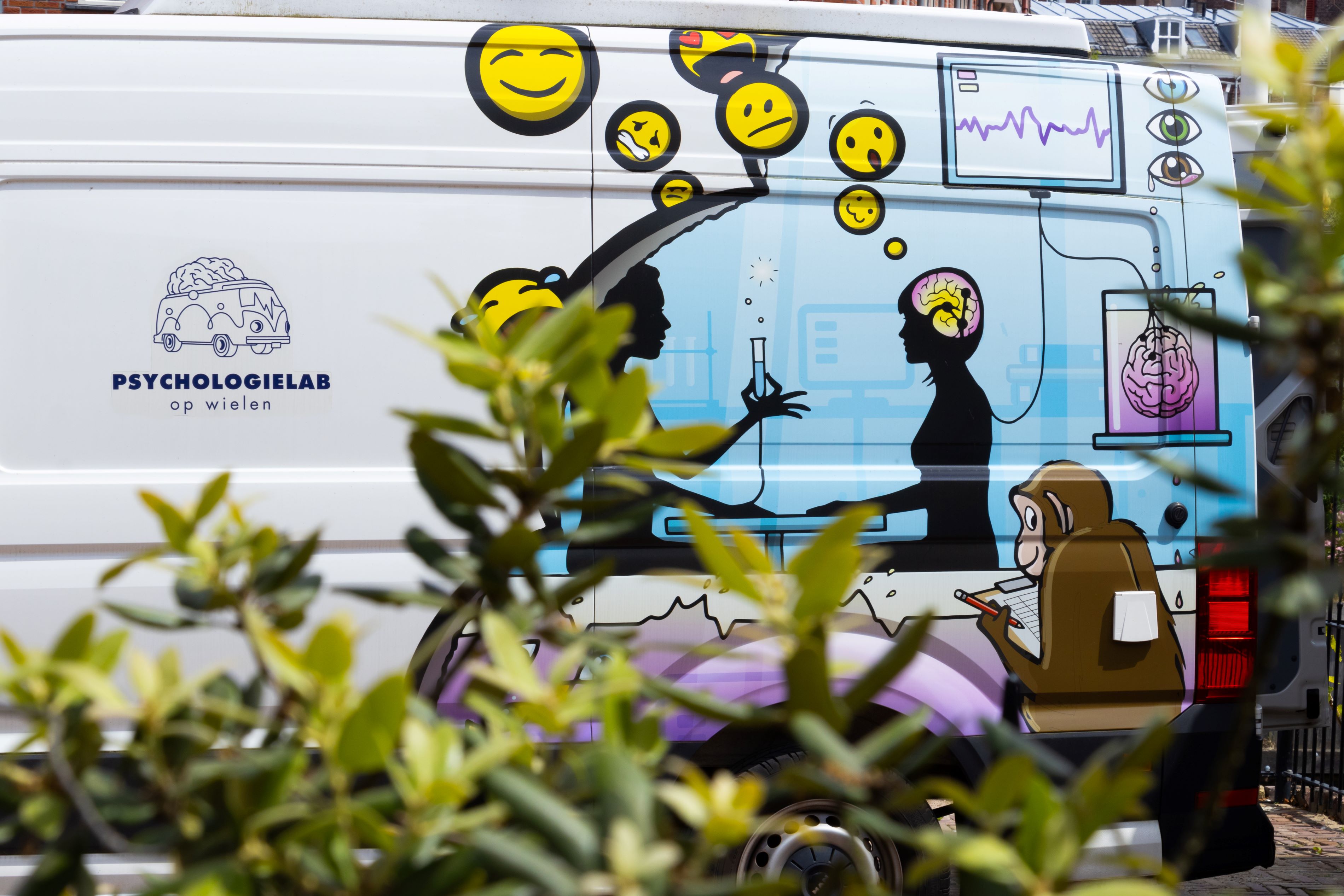
The game developer
Diego Arize is a software engineer in Mariska Kret's Comparative Psychology & Affective Neuroscience (CoPAN) lab and skilled in game development and machine learning. Arize: 'The Psychology Lab on Wheels helps us bring science outside the university. By surveying as many different participants as possible, we develop the app in such a way that as many people as possible can benefit from it. To identify differences, participants are asked a number of questions about social skills, habits and demographics. Everyone is different and we as researchers are interested in that too. In Psychology Lab on Wheels, we will see live whether the app works.'
Psychology Lab on Wheels makes research accessible to all: with our mobile lab we literally reach people on the street. From bustling city centres to remote areas, our lab travels all over, making it easy for you to participate in our research. And with Citizen Science, we gain new insights and deepen our understanding of our brain and behaviour. So why not join us and participate in experiments? Want to rent Psychology Lab on Wheels? It can all be done with Psychology Lab on Wheels
